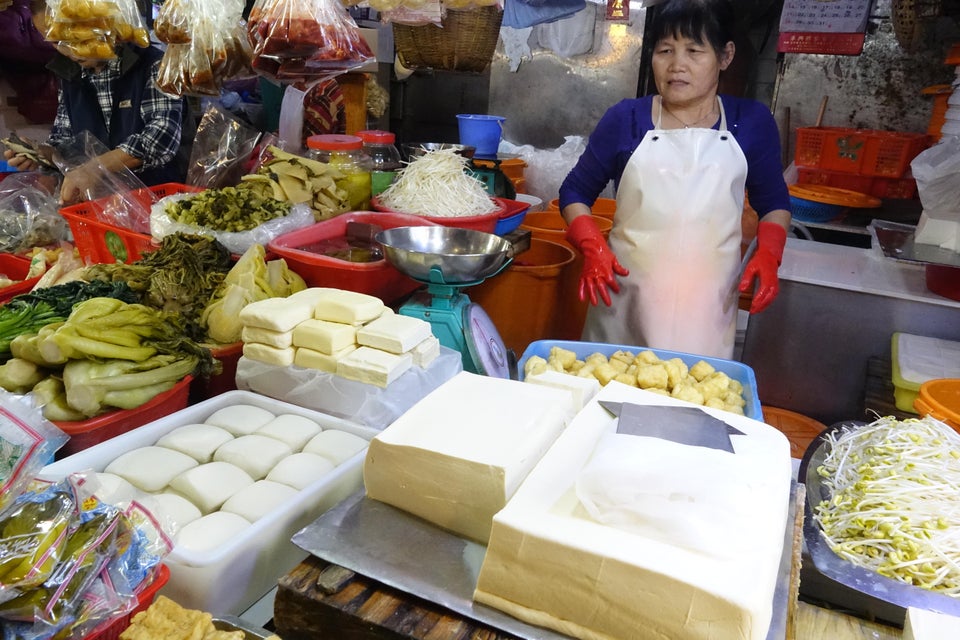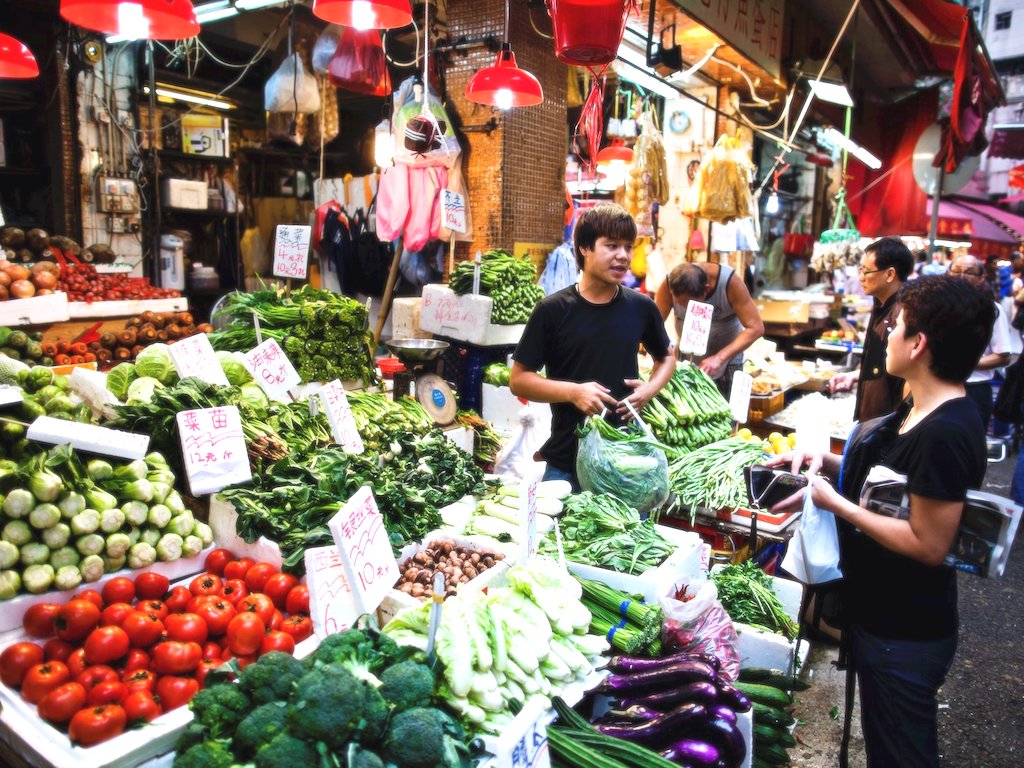6 Mins Read
In Asia, the term “wet market” refers to open air or enclosed food markets where fresh vegetables, fruit, tofu, meat and seafood are sold in an open environment – similar to farmers markets and Sunday markets in the Western world. International media outlets are now using the term wet market interchangeably with wildlife markets, in headlines linking the latter with the Covid-19 pandemic. This practice is ignorant, xenophobic, and quite frankly, not factual.
Of late, there have been dozens of articles published by outraged writers decrying the role of wild and exotic animal markets in mainland China with regards to the coronavirus outbreak and calling for these markets – which often have been referred to interchangeably as “wet markets” – to be banned by the government. This past week a Beatle even got involved.
On Tuesday, superstar Sir Paul McCartney, a veteran vegetarian and animal rights campaigner, called wet markets “medieval” and supported banning them during a chat with Howard Stern on the host’s popular radio show. “When you’ve got the obscenity of some of the stuff that’s going on there and what comes out of it, they might as well be letting off atomic bombs. It’s affecting the whole world.”
It followed similar comments by over 60 legislators in the United States, who called for a global ban on what they criss-crossed between “wet markets” or “live wildlife markets”, as if both terms could be used interchangeably.
No doubt Sir Paul and his family have done a great deal for the animal rights movement and the popularisation of plant-based diets. That being said, his comments are misleading.
Sir Paul’s words were promptly blasted across countless media headlines, all a variation of: “McCartney calls for medieval wet markets to be banned.” These articles have one serious flaw: headlines that use the term “wet market.” Sir Paul, as well as many of the writers of these headlines and the 60 US legislators, are conflating the term wet market with wildlife market. Wet markets, which are no different from farmers markets in the West, are where many Asian people purchase their daily grocery staples, while wild animal markets are places that sell illegally trafficked exotic creatures usually intended for the black market.
These headlines have contributed to the spreading of misinformation and to the doing so, they have helped spread inaccurate information at a time when the world is already flooded with false and misleading stories that perpetuates xenophobia. Given how powerful his voice and platform are, Sir Paul ought to consider his words more carefully.
Wet markets are a grocery go-to in every day Asian life
In China and across much of Asia, a “wet market” describes any market where fresh produce, meat and fish is sold in an unenclosed setting, alongside other perishable goods such as freshly made tofu, noodles, dumplings and local condiments. The term “wet” is used for a couple of reasons: firstly, sellers usually pour water over produce to keep it cool, clean and fresh, or they use to keep their wares fresh, which then melts. Another explanation involves the daily hosing down of the market floors every evening at closing time.
While these markets may appear to be unhygienic to some, they operate much like farmers markets and Sunday markets that are popular in Europe and North America. Small family businesses set up their stalls in these markets to sell their fresh products to the local community. And yes, meat and seafood is sold at wet markets, just like at butcher stalls and fishmongers in the West.
For millions of people in Asia, wet markets are essential to daily life- many Asian people prefer to shop daily for produce to ensure they are eating the freshest produce available, in contract to the frozen and packaged foods available at supermarkets. In urban cities such as Hong Kong, Singapore and Shanghai, wet markets are often the only remaining outlets where consumers can directly purchase items from smallholder farmers or producers.
Wet markets are hubs of food culture and tradition
Frequent visitors enjoy knowing their favourite local tofu makers, or the family who makes the best chilli oil using a secret recipe that was passed down from one generation to another. There is a cultural element to the wet market shopping experience – small vendors usually make recommendations for which vegetables are in season or out of season, or advice on how best to cook them to balance “heaty” and “cooling” ingredients according to traditional culinary practices.
Some stalls in wet markets also retail goods that are purchased from wholesale suppliers, and customers can purchase the same products found in supermarkets but without the premium price, paying only a fraction of what they are sold for in conventional Western-style stores.
Wet markets are also very popular with zero wasters, consumers looking to buy groceries in bulk or without packaging / plastic. These neighbourhood anchors offer an ideal solution for eco-conscious city-dwellers who wish to forgo the days-old plastic-wrapped produce sitting in air-conditioned supermarket aisles. At wet markets, you can bring your own produce bags, reusable containers and jars, and fill up the amount you need, weigh it, and pay for that amount, ensuring minimal packaging and food waste.

Wildlife markets are not wet markets
Wildlife markets are different from neighbourhood wet markets. Wuhan’s Huanan wholesale seafood market, which has been associated with the outbreak of Covid-19 (some people suggest it is the pandemic’s point of origin though doubt has been shed about this too), is a “grey-area” market that showcases an entire section dedicated to selling exotic meats and wild animals in an open setting where illegal and cruel wildlife trading is allowed to thrive – think live civet cats and wolf pups.
Using the term “wet market” for “wildlife market” is not only inaccurate, but stokes further misconceptions, fears and prejudices about Asian culture.
The call for banning wet markets, which have a long history in the region, stems from ignorance about what these markets are, and is based on cultural prejudices about food cultures in the continent that some in the Western world may perceives as “foreign” and “unhygienic,” or worse still “barbaric”. Continuing to confuse the terms is dangerous, and can exacerbate existing biases against Asian cultures.
This is dangerous, given that since the beginning of the coronavirus crisis, hate crimes against Asians across the world and other incidents of what is being termed sinophobia have skyrocketed, to the point that Wikipedia now has a page detailing them.
Banning illegal wildlife trade is a must
There is little doubt left that the current Covid-19 zoonotic pandemic is linked to a wild animal, so the real problem that needs to be addressed is wildlife markets and the (mostly underground and mostly illegal) wild animal industry, which has supply chains spanning the globe.
Governments in Asia have already begun to clamp down on the wildlife trade, but many of the laws continue to allow humans to own wild species such as tigers, monkeys and lions. And the problem is hardly Asia-specific. Thanks to a certain hit true crime show, many of us have just discovered that in the United States, there are as many as 7,000 privately-owned tigers, nearly double the estimated 3,800 that roam in the wild globally, but how many headlines have you seen lately talking about this?
Scientists and researchers have also warned that the global modern factory farming industry itself is a threat that will bring about new diseases. The reality of industrial animal agriculture means that thousands of animals are fed antibiotics to stay confined in disease-ridden conditions – the perfect breeding ground for drug-resistant superbugs. According to the Center for Disease Control (CDC), 3 out of every 4 new or emerging infectious diseases in humans come from animals.
The world is suffering deeply from the impact of Covid-19 – it has cost hundreds of thousands of human lives, put millions of jobs at risk and pushed vulnerable groups deeper into poverty. We don’t yet know the full extent of the effect of the pandemic, but experts everywhere agree that it will take us years (possibly decades) to recover.
What is clear is that the world must do everything it can to prevent the emergence of another global disease outbreak. And inaccurately pointing fingers at wet markets instead of fighting the illegal wild animal trade that exacerbates outbreaks and addressing our global appetite for animal protein won’t help bring about a safer world. Instead it’s an unnecessary and potentially dangerous distraction.
Read our earlier coverage of Covid-19 here.
Lead image courtesy of Twitter / Mandarin Oriental.




